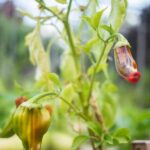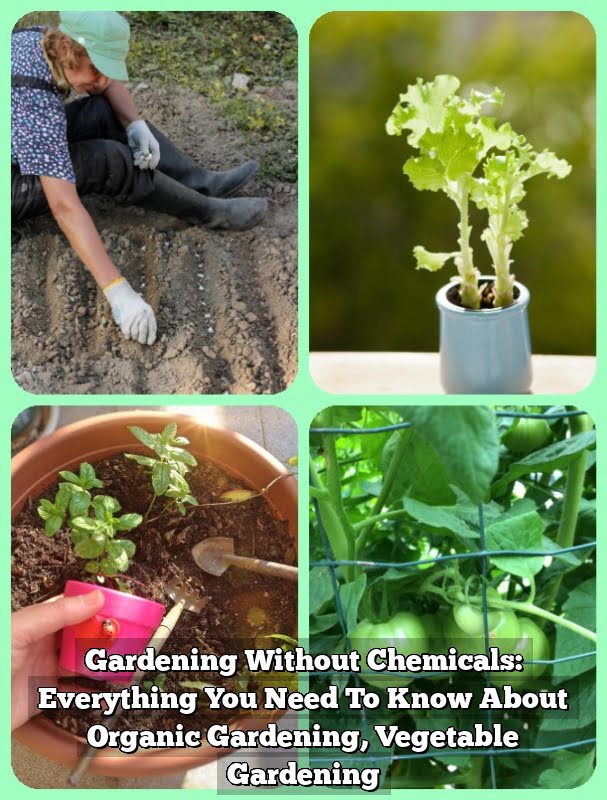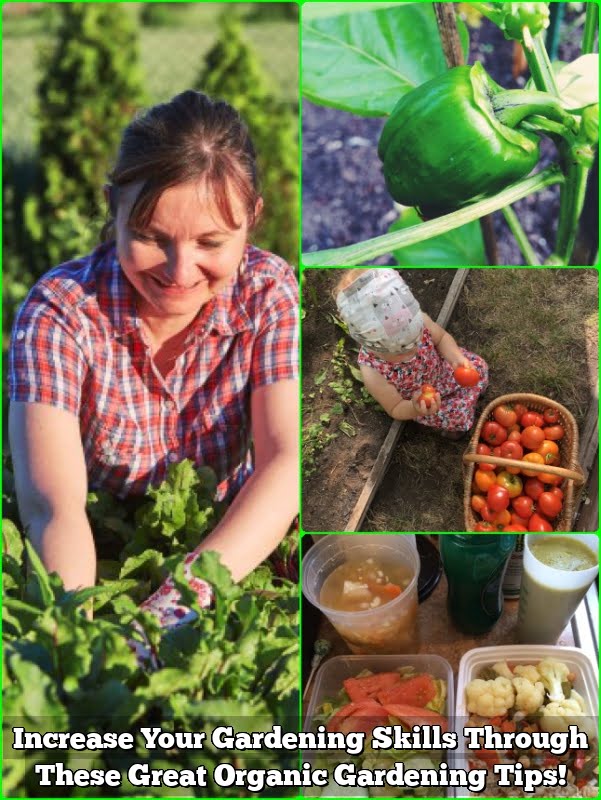Nestled along the beautiful coastline of South Carolina, Myrtle Beach is a popular destination known for its stunning beaches, vibrant nightlife, and family-friendly attractions. But beyond its tourist appeal, Myrtle Beach also offers a conducive environment for vegetable gardening. With its warm climate and unique soil conditions, the city presents an ideal setting for cultivating a variety of vegetables that thrive in this region.
The subtropical climate of Myrtle Beach provides ample sunshine and moderate rainfall throughout the year, creating favorable growing conditions for a wide range of vegetables. Additionally, the sandy soil composition in this area poses both benefits and challenges for gardeners, requiring careful consideration and proper techniques to ensure successful cultivation.
In this article, we will delve into the specific factors that make Myrtle Beach an excellent location for vegetable gardening, providing valuable insights on climate, soil conditions, plant selection, soil preparation, planting techniques, pest control, harvesting methods, and community resources. Whether you are a seasoned gardener or a novice enthusiast, this comprehensive guide aims to equip you with the knowledge and practical tips needed to establish and maintain a thriving vegetable garden in Myrtle Beach.
Climate and Soil Conditions in Myrtle Beach
Myrtle Beach, located in the coastal region of South Carolina, boasts a subtropical climate with hot and humid summers and mild winters. These climate conditions create a unique environment for vegetable gardening in Myrtle Beach, SC. The average annual temperature of 64 degrees Fahrenheit allows for a longer growing season, making it possible to cultivate a wide variety of vegetables throughout the year.
In addition to the climate, understanding the soil conditions is crucial for successful vegetable gardening in Myrtle Beach. The area is predominantly comprised of sandy soil, which tends to drain quickly and may lack essential nutrients.
However, by amending the soil with organic matter such as compost or well-rotted manure, gardeners can improve its fertility, water retention, and overall structure. Conducting a soil test before planting can provide valuable insights into any deficiencies or imbalances that need to be addressed to optimize growing conditions.
Gardeners in Myrtle Beach should also take note of the local rainfall patterns, as excessive rain during certain times of the year can affect plant growth and increase the risk of diseases. By selecting vegetables that are well-suited to the climate and soil conditions of Myrtle Beach, and implementing appropriate irrigation techniques when necessary, gardeners can set themselves up for a bountiful harvest.
With careful consideration of these key factors, vegetable gardening in Myrtle Beach can be a rewarding and fruitful endeavor for both beginners and experienced gardeners alike.
Selecting the Right Vegetables for Myrtle Beach
Myrtle Beach, SC offers a unique environment for vegetable gardening, with its subtropical climate and sandy soil. When deciding what to plant in your Myrtle Beach garden, it’s important to consider the specific conditions of the area. Some vegetables thrive in this climate and soil type, while others may struggle to grow. By carefully selecting the right vegetables for Myrtle Beach, you can ensure a successful and bountiful harvest.
One of the most important factors to consider when choosing vegetables for your Myrtle Beach garden is the climate. The subtropical climate of Myrtle Beach is characterized by hot and humid summers, mild winters, and plenty of rainfall. As a result, certain vegetables that are well-suited to this type of climate include tomatoes, peppers, okra, sweet potatoes, collard greens, and squash. These vegetables not only tolerate the heat and humidity but also thrive in these conditions.
In addition to considering the climate, it’s crucial to take into account the sandy soil prevalent in Myrtle Beach. This type of soil drains quickly but may lack certain nutrients that are essential for plant growth. Therefore, it’s beneficial to choose vegetables that are well-adapted to sandy soils, such as carrots, radishes, cucumbers, and melons. These vegetables have roots that can easily penetrate the sandy soil and access water and nutrients effectively.
When planning your vegetable garden in Myrtle Beach, it’s important to select a variety of vegetables that are suited to the local climate and soil conditions. By choosing the right vegetables for your garden, you can set yourself up for a successful growing season and abundant harvests of fresh produce. With careful selection and planning, you can enjoy the rewards of vegetable gardening in Myrtle Beach throughout the year.
By carefully selecting the right vegetables for Myrtle Beach through thorough consideration of their adaptability with regards to both weather patterns and local soil types ensures healthy yields from planting season onwards.
Preparing the Soil
When it comes to vegetable gardening in Myrtle Beach, preparing the soil is essential for creating the ideal growing conditions. The sandy soil in this coastal city can be a challenge for gardeners, but with the right techniques, it can be transformed into fertile ground for a bountiful harvest.
Here are some tips and techniques for preparing the soil for vegetable gardening in Myrtle Beach:
1. Soil Testing: Before you start planting, it’s important to test your soil to determine its pH level and nutrient content. You can purchase a soil testing kit at a local garden center or contact your county extension office for assistance. Once you know the condition of your soil, you can make any necessary adjustments to create the best environment for your vegetables.
2. Adding Organic Matter: Sandy soils in Myrtle Beach often lack organic matter, which is essential for retaining moisture and nutrients. To improve the soil structure, consider adding compost, aged manure, or other organic materials. Work these amendments into the soil to increase its fertility and water-holding capacity.
3. Mulching: Once you’ve prepared the soil and planted your vegetables, consider using mulch to help retain moisture, suppress weeds, and regulate soil temperature. Organic mulches such as straw, pine needles, or shredded leaves are excellent choices for vegetable gardens in Myrtle Beach.
By following these tips and techniques for preparing the soil, you can create an ideal growing environment for your vegetable garden in Myrtle Beach. With proper care and attention to the unique characteristics of the local soil, you’ll be on your way to a successful harvest of delicious homegrown produce.
Planting and Maintenance
When it comes to vegetable gardening in Myrtle Beach, SC, proper planting and maintenance are crucial for the success of your garden. Here’s a step-by-step guide to help you establish and care for a thriving vegetable garden in this coastal city:
1. Choose the Right Location: Select a spot for your vegetable garden that receives at least 6-8 hours of sunlight per day. Ensure that the area has well-draining soil and is easily accessible for regular maintenance.
2. Prepare the Soil: Before planting, it’s essential to prepare the soil by tilling it and adding organic matter such as compost or manure to improve its texture and fertility. Consider conducting a soil test to determine if any amendments are needed to optimize growing conditions.
3. Selecting and Planting Vegetables: When selecting vegetables for your garden, consider the climate and soil conditions in Myrtle Beach. Opt for heat-tolerant varieties such as tomatoes, peppers, squash, and okra. Choose vegetables that are suitable for the warm temperatures and sandy soil commonly found in this region.
4. Establishing a Maintenance Routine: Once your vegetable garden is planted, it’s important to establish a regular maintenance routine. This includes watering according to the specific needs of each plant, fertilizing as needed, and monitoring for pests and diseases.
5. Weeding and Mulching: Keep weeds at bay by regularly pulling them from the garden beds. Apply a layer of mulch around vegetables to suppress weed growth, retain moisture, and regulate soil temperature.
By following these steps for planting and maintaining a vegetable garden in Myrtle Beach, SC, you can set yourself up for a successful harvest of fresh produce while enjoying the therapeutic benefits of gardening in this coastal community. Remember to stay connected with local resources and events to enhance your gardening experience in Myrtle Beach.
Dealing With Common Pests and Diseases
When it comes to vegetable gardening in Myrtle Beach, SC, one of the challenges that gardeners may face is dealing with common pests and diseases. However, with the right knowledge and preventive measures, it is possible to protect your garden from potential threats and ensure a successful harvest.
Identifying Common Pests and Diseases
Before you can effectively protect your vegetable garden from pests and diseases, it’s important to be able to identify the common culprits. In Myrtle Beach, some of the most prevalent pests include aphids, caterpillars, and whiteflies, while diseases such as powdery mildew and blight can also pose a threat to your plants.
Preventive Measures
One of the best ways to protect your garden from pests and diseases is by implementing preventive measures. This includes properly spacing your plants to improve air circulation, practicing crop rotation to prevent the build-up of disease-causing organisms in the soil, and regularly inspecting your plants for any signs of infestation or disease.
Natural Remedies and Control Methods
In the event that your vegetable garden does become infested with pests or affected by disease, there are natural remedies and control methods that you can use before resorting to chemical pesticides. For example, introducing beneficial insects like ladybugs and lacewings can help control aphid populations, while using neem oil can effectively mitigate fungal diseases.
By being proactive and diligent in monitoring your garden, you can effectively protect your vegetable plants from potential threats in Myrtle Beach’s unique growing environment.
Harvesting and Preserving
When it comes to vegetable gardening in Myrtle Beach, SC, the harvesting and preserving stage is the most rewarding part of the process. The warm climate and fertile soil conditions in this area make it an ideal location for growing a wide variety of vegetables. With proper care and attention, you can maximize your yield and enjoy the fruits of your labor for months to come.
One of the keys to successful harvesting is knowing when each type of vegetable is ready to be picked. It’s important to harvest your vegetables at the right time to ensure that they are at their peak flavor and nutritional value. For example, tomatoes should be harvested when they are fully ripe but still firm, while leafy greens like lettuce and spinach are best picked when they are young and tender.
Once you have harvested your vegetables, it’s essential to preserve them properly to extend their shelf life. This can be done through techniques such as canning, freezing, or pickling. By preserving your produce, you can continue to enjoy homegrown vegetables long after the growing season has ended.
Lastly, don’t forget to share the bounty of your harvest with friends and family. Vegetable gardening in Myrtle Beach creates an abundance of fresh produce that can be shared with loved ones or donated to local food banks. Sharing your homegrown veggies not only spreads joy but also strengthens community connections through a shared love of gardening.
| Harvesting Tips | Preservation Techniques |
|---|---|
| Harvest tomatoes when fully ripe but firm | Canning preserves like tomato sauce or salsa |
| Pick lettuce and spinach when young and tender | Freezing vegetables like green beans or peas |
| Share your harvest with friends and family or local food banks | Pickling cucumbers or other garden veggies |
Community Resources and Events
Myrtle Beach is not only a beautiful tourist destination, but it also has a thriving gardening community. There are numerous resources and events available to help local gardeners connect with one another and take their vegetable gardens to the next level. Whether you are a seasoned gardener or just getting started, being part of the gardening scene in Myrtle Beach can enrich your experience and provide valuable support and knowledge.
Local Gardening Clubs and Organizations
One great way to connect with other vegetable gardeners in Myrtle Beach is to join a local gardening club or organization. These groups often hold regular meetings, workshops, and events where members can share tips, techniques, and resources. Some clubs also organize community gardens where members can work together on larger projects and learn from each other’s experiences.
Gardening Classes and Workshops
Another valuable resource for vegetable gardening in Myrtle Beach is the availability of gardening classes and workshops. Many local nurseries, community centers, and educational institutions offer programs on various aspects of gardening, from soil preparation to pest management. These classes not only provide practical knowledge but also offer opportunities to meet other like-minded individuals who are passionate about growing their own vegetables.
Farmers Markets and Garden Festivals
Attending farmers markets and garden festivals in Myrtle Beach is not only a great way to enjoy fresh produce but also an opportunity to network with local growers and vendors. You can learn about the best vegetables for the local climate, discover new varieties, and even get advice on preserving your harvest. Additionally, these events often feature talks or demonstrations by experienced gardeners, providing valuable insights into successful vegetable gardening in Myrtle Beach, SC.
Conclusion
In conclusion, vegetable gardening in Myrtle Beach, SC offers numerous benefits and joys for both experienced and novice gardeners. The city’s unique climate and soil conditions provide a fertile ground for a wide variety of vegetables to thrive, making it an ideal location for anyone interested in cultivating their own produce. With the right knowledge and preparation, individuals can enjoy a bountiful harvest while connecting with nature and the local community.
One of the greatest benefits of vegetable gardening in Myrtle Beach is the opportunity to enjoy fresh, homegrown produce throughout the year. By selecting the right vegetables suited for the local climate and soil, gardeners can experience the satisfaction of nurturing plants from seedlings to full-grown crops.
The act of tending to a garden also provides numerous physical and mental health benefits, as it allows individuals to spend time outdoors, engage in physical activity, and reduce stress through mindful gardening practices.
Furthermore, Myrtle Beach offers a vibrant gardening community that provides valuable resources and support for individuals looking to start their own vegetable gardens. From local nurseries offering plant varieties tailored to the area’s specific conditions to community events where gardeners can exchange tips and advice, there are plenty of opportunities for individuals to connect with like-minded enthusiasts.
Overall, vegetable gardening in Myrtle Beach is not only a rewarding activity but also a way to foster connections with others who share a passion for sustainable living and locally sourced produce.
Frequently Asked Questions
What Zone Is Myrtle Beach SC in for Planting?
Myrtle Beach, SC is located in USDA Hardiness Zone 8a for planting. This means the area experiences mild winters and a long growing season, making it suitable for a variety of plants and vegetables.
Can You Grow Vegetables Year Round in South Carolina?
South Carolina’s climate allows for year-round vegetable gardening in most areas. With its mild winters and warm summers, many vegetables can be grown throughout the year with proper planning and care.
What Are the Best Vegetables to Grow in South Carolina?
The best vegetables to grow in South Carolina include tomatoes, peppers, squash, cucumbers, beans, and sweet potatoes. These thrive in the state’s warm climate and are popular choices for home gardens and small-scale farming operations alike.

If you’re looking to get into vegetable gardening, or are just looking for some tips on how to make your current garden better, then you’ve come to the right place! My name is Ethel and I have been gardening for years. In this blog, I’m going to share with you some of my best tips on how to create a successful vegetable garden.





